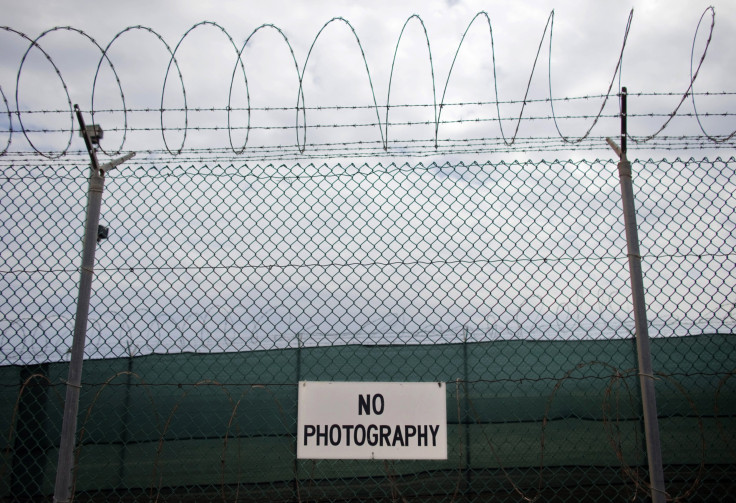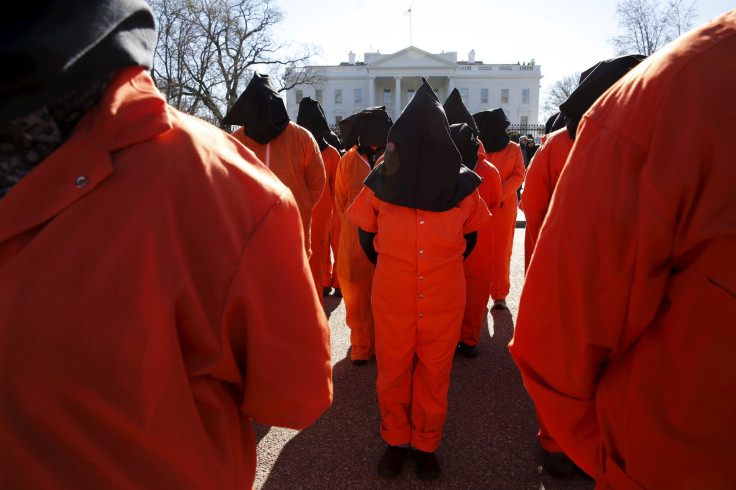After Plan To Close Guantanamo Bay Announcement, Human Rights Advocates Still Worry

U.S. President Barack Obama's announcement Tuesday that he would push forward plans to shut down the controversial U.S. military detention facility at Guantanamo Bay in Cuba was welcomed by human rights advocates. But some remained wary that alleged wrongs against the detainees would be redressed and their fair trials would be granted, both of which, they say, are ultimately necessary to ending a dark patch of the post-9/11 era
"The problem has never just been Guantanamo... The problem is forever, indefinite detention without charge or trial," said Elizabeth Beavers, policy and activism coordinator for Amnesty International. “Each detainee should be charged and given a fair trial or released. Those are the only two options.”
During a speech at the White House Tuesday, Obama emphasized the need to see detainees tried through either military tribunals or federal courts. Yet dozens of the 91 individuals left at the facility remain in legal limbo and subject to periodic reviews to determine whether they can be granted a trial or be transferred to a third-party country. Many of their cases lack sufficient evidence against them and some of those detainees' cases are likely to linger — regardless of their transfer to U.S. soil.
"This is not a plan to close Guantanamo," The Center for Constitutional Rights (CCR), whose attorneys represent dozens of the remaining detainees, said, Vice News reported. "The centerpiece of the plan — moving those detainees who have not been and will never be charged with any crime to a prison in the US — does not 'close Guantanamo,' it merely relocates it to a new zip code."
The detainees currently being held come from more than a dozen countries. Fifty-two — a majority of the detainees — are from Yemen. Among those under detention are suspected al Qaeda operatives like Khalid Shaikh Mohammad and Abu Zubaydah, but most are not high-level suspects. Thirty-five of the 91 detainees have already been cleared for release. Holding each prisoner costs the U.S. about $3 million per year.

Guantanamo Bay has remained a contentious political topic for more than a decade. But since its population has dwindled – from hundreds a few years ago to 91 today – it has largely fallen out of the public eye. Peter Jan Honigsberg, professor at the University of San Francisco School of Law, said he was relieved to see Obama bring the issue into the spotlight, although he said he should have pushed earlier when he had a Democratic Congress to work with.
"I’m glad that he’s making it a public record again," said Honigsberg, who is also founder and director of Witness to Guantanamo, a San Francisco-based project that documents the situation at the Guantanamo Bay detention center. "I don’t think that people pay attention to Guantanamo. My sense is that most people actually think it's closed, surprisingly."
Obama's speech offered few details as to how he planned to progress, other than to put forward a plan to present to Congress regarding closing the facility. But analysts and human rights advocates have repeatedly argued that past and present wrongs needed to be compensated. During the height of the war in Afghanistan, Guantanamo Bay was known for its harsh interrogation tactics, including water-boarding.
"Clearly it’s better than it was under the Bush administration, but it still is pretty miserable to the extent that someone is left in a cell for up to 15 years and held without charges," Honigsberg said.
Under the Geneva Conventions, enemies picked up in war can be detained until the end of hostilities. The U.S. may no longer be at war against Afghanistan, but as the War on Terror continues, the legality of their detention remains murky.
Some lawyers representing former detainees have brought forward cases against the U.S. government in hopes of securing compensation for their clients, but their cases have been blocked. Many of the former detainees now live in third party countries — not their homeland — and lead difficult lives, stained by financial hardship and psychological scars, Honigsberg said.
"The government, I feel, has an obligation to assist these men to get back on their feet and have some life going forward," he said.
Beavers, with Amnesty International, took the demands a step further. "A full plan would include re-opened, expanded investigations and appropriate prosecutions for the architects of the torture regime, who continue to enjoy impunity for their crimes," she said.
© Copyright IBTimes 2024. All rights reserved.






















